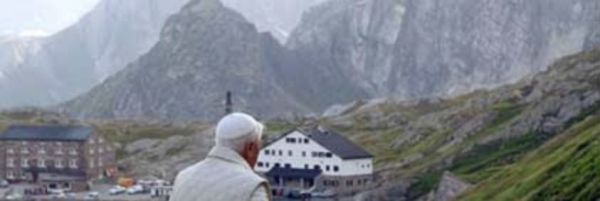Jesus has shown an absolute power regarding this death, seen when he gives life back to the widow of Nain's young son (cf. Lk 7: 11-17) and to the 12 year-old girl (cf. Mk 5: 35-43). Precisely concerning her he said: "The child is not dead but sleeping" (Mk 5: 39), attracting the derision of those present. But in truth it is exactly like this: bodily death is a sleep from which God can awaken us at any moment.
This lordship over death does not impede Jesus from feeling sincere "com-passion" for the sorrow of detachment. Seeing Martha and Mary and those who had come to console them weeping, Jesus "was deeply moved in spirit and troubled", and lastly, "wept" (Jn 11: 33, 35). Christ's heart is divine-human: in him God and man meet perfectly, without separation and without confusion. He is the image, or rather, the incarnation of God who is love, mercy, paternal and maternal tenderness, of God who is Life. Therefore, he solemnly declared to Martha: "I am the resurrection and the life; he who believes in me, though he die, yet shall he live, and whoever lives and believes in me shall never die". And he adds, "Do you believe this?" (Jn 11: 25-26). It is a question that Jesus addresses to each one of us: a question that certainly rises above us, rises above our capacity to understand, and it asks us to entrust ourselves to him as he entrusted himself to the Father. Martha's response is exemplary: "Yes, Lord; I believe that you are the Christ, the Son of God, he who is coming into the world" (Jn 11: 27). Yes, O Lord! We also believe, notwithstanding our doubts and darkness; we believe in you because you have the words of eternal life. We want to believe in you, who give us a trustworthy hope of life beyond life, of authentic and full life in your Kingdom of light and peace.
We entrust this prayer to Mary Most Holy. May her intercession strengthen our faith and hope in Jesus, especially in moments of greater trial and difficulty.
[Pope Benedict, Angelus 9 March 2008]












